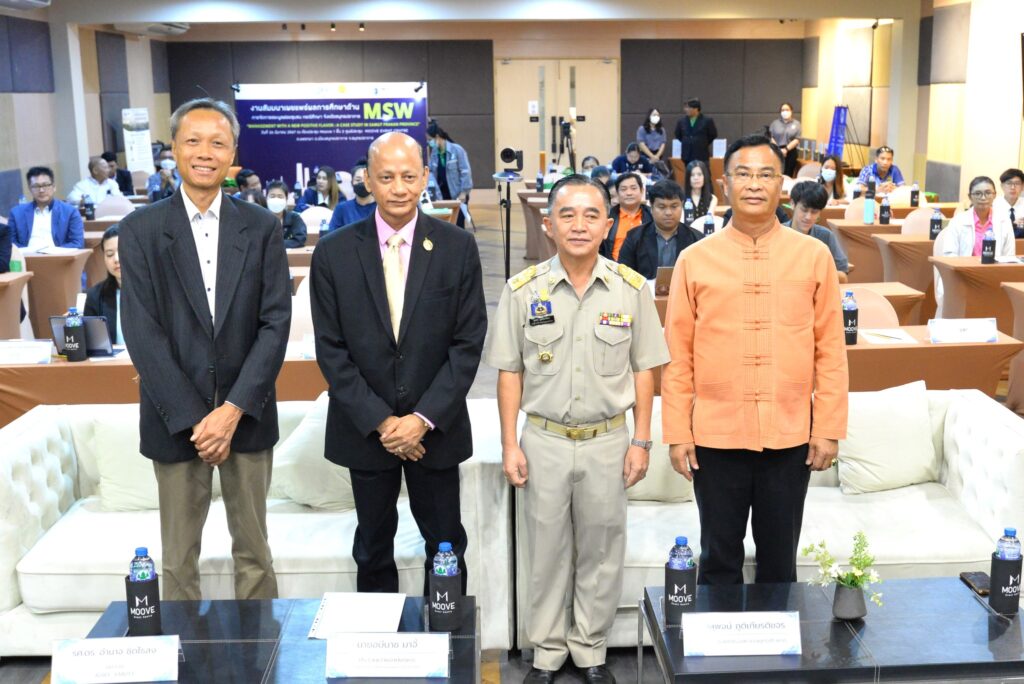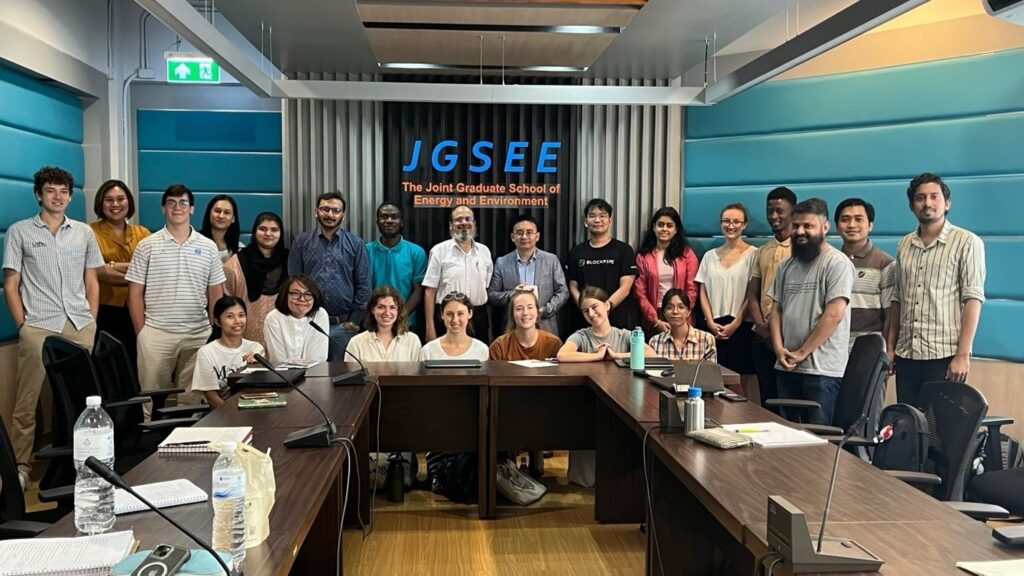Hub Net Zero, in collaboration with partners, hosted a webinar on cassava cultivation for carbon sequestration on 27 March 2025. The event featured distinguished speakers, including Assoc. Prof. Dr. Amnat Chidthaisong and Assoc. Prof. Dr. Treenut Saithong from King Mongkut’s University of Technology Thonburi (KMUTT) and Dr. Suchat Pongchaiphol from the National Center for Genetic Engineering and Biotechnology, National Science and Technology Development Agency (BIOTEC-NSTDA).


Assoc. Prof. Dr. Amnat Chidthaisong opened the seminar, highlighting research in Thailand on the role of crop cultivation in both emitting and absorbing greenhouse gases (GHGs) and how these processes can be leveraged for carbon capture, storage, and utilization. He presented his studies quantifying GHG emissions and reductions in Thailand’s key economic crops—rice, sugarcane, cassava, and field corn. The findings identified emission hot spots and informed mitigation strategies, including water management, no-till farming, biochar application, and optimized fertilizer use.


Assoc. Prof. Dr. Treenut Saithong discussed cassava’s potential in industrial CO2 uptake and its contribution to food security. Cassava’s CO2 absorption capacity at elevated CO2 level remains high after storage root formation, making it a promising candidate for industrial carbon capture. She also presented preliminary findings from her ongoing study using Thai cassava varieties and nanobubble technology for CO2 delivery.


Dr. Suchat Pongchaiphol elaborated on nanobubble technology and its diverse applications. In agriculture, CO2 nanobubble delivery enhances plant growth and reduces fertilizer use. In wastewater treatment, it improves aeration efficiency and biological decomposition of organic matter. The technology also has medical applications, such as reducing inflammation. He is currently collaborating with Dr. Treenut on using nanobubbles as a CO2 carrier for cassava.
The webinar attracted over 90 participants from academia and industry, fostering discussions on innovative approaches to carbon sequestration in agriculture.



